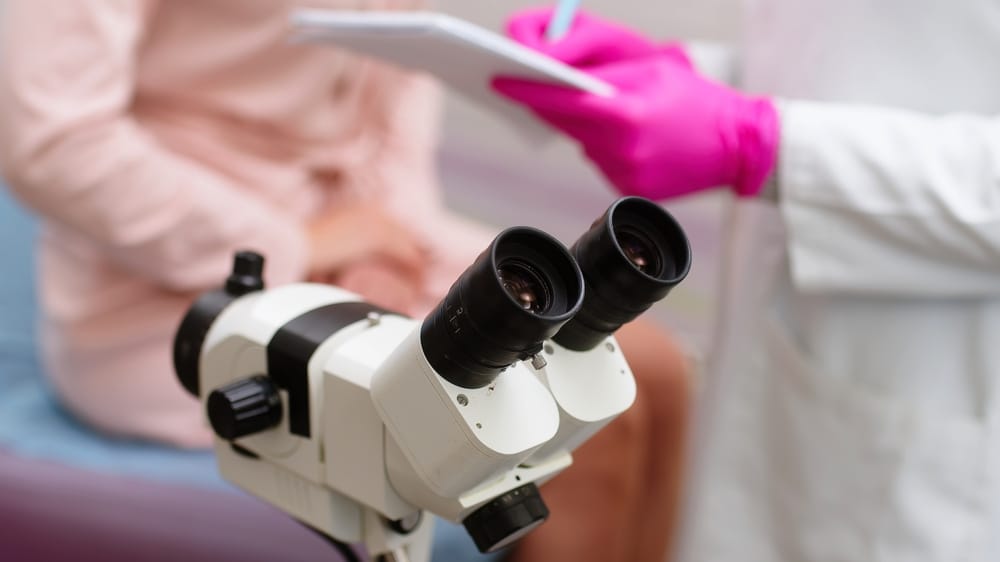Regular visits to the gynecologist are crucial for maintaining your health and catching potential issues early. However, many women feel anxious or uncomfortable about these appointments, often putting them off. Understanding what to do and what not to do before your visit can help make the experience less stressful and more beneficial for your health.
Here are 10 things you should avoid before your gynecologist appointment to ensure a smooth, confident visit.
1. Don’t Panic – Stay Calm and Confident
Feeling nervous about your gynecologist appointment is perfectly normal. Many women experience discomfort or anxiety about exposing themselves during the exam. But remember: your doctor is a professional, and they are there to ensure your health, not to judge your body.
Gynecologists perform these exams every day, and they’re focused solely on your well-being. Trust that your doctor is focused on identifying any potential health concerns, like breast or cervical cancer, and offering treatment. Try to relax and remember: it’s all about your health.
2. Don’t Skip a Shower (But Skip Douching)
A common question is, “Should I shower before my appointment?” While it’s not necessary to shave or use scented products, freshening up is always a good idea. Not only will it make you feel more comfortable, but it also ensures the doctor can do a thorough, effective examination.

However, avoid douching or using vaginal creams 48 hours before your appointment. Douching can disrupt the natural pH balance of your vagina and may interfere with your gynecologist’s ability to accurately assess your health. A gentle rinse with warm water is enough!
3. Be Honest – Don’t Hide Symptoms
If you’re experiencing symptoms like itching, pain, or unusual discharge, don’t hold back. Your gynecologist is there to help, and the more honest you are, the better they can assist you. Whether it’s something small or a more serious concern, always communicate openly.
Remember: your doctor is a trusted medical professional, and there’s nothing to be embarrassed about when it comes to your health.
4. Avoid Sexual Activity 24 Hours Before the Exam
While some gynecologists may not require this, it’s often recommended to avoid sex 24 hours before your appointment. Sexual activity can irritate the vaginal area or affect the accuracy of certain tests, such as pap smears or STI screenings.
Also, steer clear of using any personal lubricants or spermicide, as they can interfere with vaginal pH levels, which are crucial for accurate test results.
5. Don’t Self-Diagnose on Google
It’s easy to jump on Google and start diagnosing yourself based on symptoms, but this can often lead to confusion or unnecessary worry. Trust your doctor’s expertise and allow them to guide the conversation. If you have concerns, ask questions, but don’t try to walk your doctor through your online research. Let them do their job – they have the training and knowledge to give you the best possible care.
6. Don’t Keep Questions to Yourself
Are you concerned about birth control options, pregnancy plans, or changes in your body? Ask questions. Many women hesitate to discuss topics that feel embarrassing, but gynecologists are there to guide and educate you.

Don’t be afraid to bring up topics like menstrual irregularities, contraception, or fertility. It’s important to ask anything that’s on your mind. Your doctor is bound by confidentiality and is the perfect person to address your concerns.
7. Don’t Be Intimidated by the Gynecological Exam Chair
At first glance, the gynecological chair might seem intimidating, especially during your first visit. Stay relaxed—the chair is designed for an effective exam, and you’ll be more comfortable if you don’t tense up.
The exam itself shouldn’t be painful; if you feel uncomfortable, speak up, and your doctor will guide you to ensure you’re properly positioned. Staying calm and confident is key to making the process as smooth as possible.
8. For Your First Visit, Know What to Expect
If you’re visiting a gynecologist for the first time, it’s completely normal to feel nervous. You don’t have to undergo a pelvic exam immediately. Many first-time visits are about discussing your health, medical history, and general concerns. It’s often a consultation, not a full exam.
If you’re a younger woman, consider bringing a friend or partner along for support during your first appointment. And remember, it’s perfectly okay to ask questions during this visit.
9. Prepare by Writing Down Questions
When nerves kick in, it’s easy to forget important questions. Jot them down before your appointment to make sure you don’t miss anything during your exam. Whether you’re concerned about your period, contraception, or overall health, writing down your questions will ensure you leave the office feeling informed.
Also, don’t worry about choosing a gynecologist based on gender—what matters most is finding a doctor you feel comfortable with and trust.
10. Always Remove Your Tampon Before the Appointment
It’s important to remember to remove any tampons before your appointment. A forgotten tampon can lead to bacterial growth and an unpleasant odor. While this is an uncommon issue, it’s an easy one to fix, and there’s no reason to feel embarrassed. If you forget, just let your doctor know—it’s something they’ve likely seen before.
Final Thoughts: Don’t Dread the Visit
If you dread your gynecologist visits, you’re not alone. Many women feel nervous about these appointments, but they’re essential for maintaining your health. Stay calm, be honest, and don’t hesitate to ask questions. These small steps can help make your visit more comfortable and ensure your doctor provides the best possible care.
Do you have any questions or concerns about your next gynecologist visit? Share your thoughts in the comments below, or reach out to us on social media! Your health matters, and we’re here to support you every step of the way.



